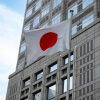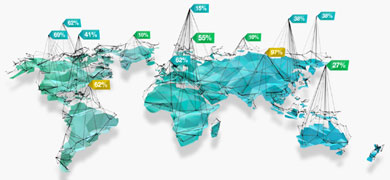Investment Insights
Staying adaptive to an evolving recovery
The world is settling into a new normal that is likely to look quite different from pre-COVID-19 norms. This includes different patterns of demand shaped by learning to live with the virus and an ongoing fiscal thrust with firm policy objectives.
New Zealand Equity Monthly – August 2021
With the reporting season in full swing, this month we turn our attention to New Zealand’s corporate results and announcements. In particular we focus on the COVID-19 pandemic and its effect on such results and highlight how changing demographics have provided opportunities for certain sectors.
New Zealand Fixed Income Monthly - August 2021
The detection of New Zealand’s first COVID-19 Delta variant infections and the subsequent decision by the Reserve Bank of New Zealand (RBNZ) to postpone a widely expected rate hike muddied the country’s outlook in August. The economy was previously running at a strong pace with unusually high inflation of 3.5% and very low unemployment.
Asian Equity Monthly - August 2021
Asian stocks gained in August. While concerns about the spread of the Delta variant weighed on markets at the beginning of the month, the US Federal Reserve (Fed)’s dovish commentary and a rebound in the battered Chinese technology (tech) sector lifted sentiment towards the month-end
Japan Equity Monthly - August 2021
The news of Prime Minister Suga’s impending resignation triggered a rally in Japanese equities this week, with the market hoping that a new administration will bring the COVID-19 outbreak under control and hasten the normalisation of the economy. We explain what the market expects from the new administration and assess the implications of Japan’s upcoming general election.
Japan Value Insights
Japan’s drive to embrace hydrogen as an alternative energy source is an opportunity to identify hidden value in firms that are willing to tackle and resolve social issues.
The just released 2Q CY21 data on aggregate corporate profits in Japan was surprisingly positive, as the overall corporate recurring pre-tax profit margin surged relatively near its record high in the 3Q CY18.
Japan’s structural reform to benefit investors
The three Japan-related news topics that have overwhelmingly dominated the attention of Western media so far this year are COVID-19 (by far), the Tokyo Olympics and the showdown at Toshiba.
Future Quality Insights - August 2021
The Tokyo summer Olympics have been a welcome distraction over the last few weeks and well done to Japan for hosting the games so successfully in the current environment. In particular it is inspiring to see the years of preparation and planning being showcased by the top competitors in their respective sports.
Asian Equity Monthly - July 2021
Asian stocks suffered losses in July, weighed down by the selloff in Chinese equities following Beijing’s regulatory crackdown on the private tutoring and technology-related sectors.
Multi-asset Monthly - August 2021
Cross-asset pricing has recently been challenging our reflationary outlook. When we first discussed the prospects for reflation about a year ago, we identified a number of key factors.
New Zealand Equity Monthly - July 2021
This month we turn our focus to environment, social and governance (ESG) issues. ESG is firmly in the spotlight at present, and this trend will only intensify in the future. In global terms, Europe’s level of ESG legislation is more advanced than New Zealand’s and ESG is more of a hot topic there.
New Zealand Fixed Income Monthly - July 2021
New Zealand’s bond market performed well overall in July, although the long term sector outperformed its short term peers significantly.
Asian Fixed Income Monthly - July 2021
The US Treasury (UST) curve bull flattened in July. The Federal Open Market Committee (FOMC) meeting was largely uneventful, although the forward guidance on asset purchases was tweaked slightly to indicate that progress had been made towards the Committee’s goals although still shy of the “substantial further progress” needed for the start of tapering.
Global Equity Quarterly Q2 2021
Our philosophy is centred on the search for “Future Quality” in a company. Future Quality companies are those that we believe will attain and sustain high returns on investment. ESG considerations are integral to Future Quality investing as good companies make for good investment
Japan Equity Monthly - July 2021
We talk about the importance of staying focused on the broader implications of Japan’s corporate governance reforms when misconduct at major companies make the headlines; we also discuss the prospects for real estate and whether the market presents a bargain.
Further improving Japan’s equity culture and wealth
Japan’s economy should boom after the Olympics burden passes. Its stock market will likely rebound sharply too, but one item that has limited Japan’s equity culture, and thus, its wealth, especially for wary pensioners, is overly conservative guidance by corporations for upcoming fiscal year earnings.
Global Fixed Income Quarterly - Q3 2021 Outlook
As we roll into the August lull, we cannot help but ask the question: Where has the reflation trade gone? Expectations were for a display of heroism by the Federal Reserve (Fed) with Chair Jerome Powell announcing his grand taper plan at the Jackson Hole symposium, but I guess we will still have to wait for the big reveal.
New Zealand Fixed Income Monthly - June 2021
New Zealand’s bond market was relatively flat in June, although most sectors were on the positive side. Looking ahead, New Zealand appears set to track the US, where interest rate hikes could now happen as early as 2022.
New Zealand Equity Monthly - June 2021
This month, we take a look at the current state and prospects of New Zealand’s five main electricity generators/retail providers. Almost all the electricity in New Zealand is generated by five companies: Genesis Energy, Contact Energy, Meridian Energy, Mercury Energy and Trustpower.

























